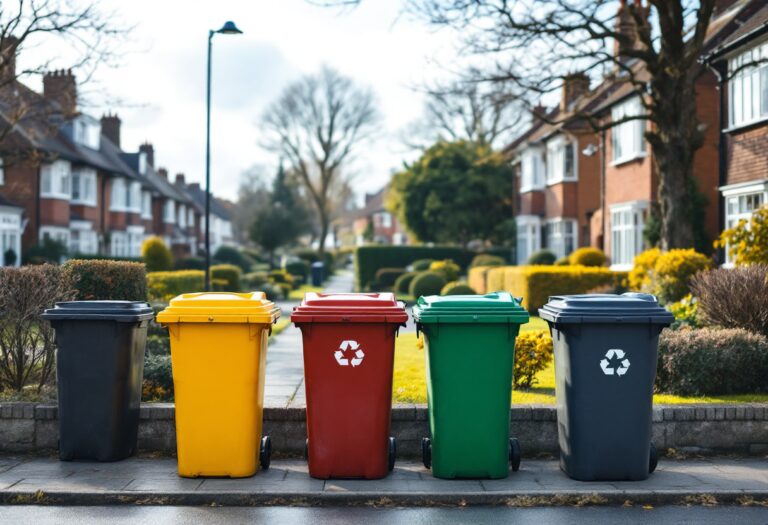A uniform approach to waste management aims to simplify recycling for households across England.

Topics covered
Households across England are on the brink of a significant transformation in waste management, with the introduction of a new four-bin system aimed at simplifying rubbish collection. This initiative, spearheaded by the government, is expected to roll out as early as March 2025, addressing long-standing criticisms of the current, often confusing, waste collection practices.
Streamlining recycling efforts
The previous policy, introduced by the Conservative government in 2023, proposed a complex system involving up to seven bins for various types of waste. However, the latest policy update, titled “Simpler Recycling in England: policy update,” has revised this approach, establishing a maximum of four containers for most households and workplaces.
These containers may take the form of bags, bins, or stackable boxes, providing flexibility while ensuring a more straightforward recycling process.
The government emphasizes that this four-bin system is the default requirement and is not expected to expand in the future. Local councils will retain the autonomy to tailor their waste collection strategies to meet community needs, fostering a more practical and effective recycling environment.
Addressing the ‘postcode lottery’
One of the primary goals of this initiative is to eliminate the so-called ‘postcode lottery’ in recycling practices, where different councils implement varying collection methods. This inconsistency has often led to confusion among residents regarding what can be recycled. By standardizing the collection process, the government aims to create a cohesive recycling policy that all households can easily understand and follow.
Moreover, the new strategy mandates that ‘bad-smelling food waste’ will be collected from all households at least once a week, a move designed to improve hygiene and encourage proper waste disposal. Officials are optimistic that these changes will help rejuvenate England’s stagnating recycling rates, which have remained around 44% since 2015.
The government has outlined a clear timeline for the implementation of these changes, with significant adjustments expected by March 31, 2025. Local authorities will be granted more flexibility in handling food and garden waste, allowing for co-collection exemptions. This approach is backed by evidence suggesting that mixing these materials does not hinder their ability to be recycled or composted, as they can still be processed effectively through in-vessel composting.
Furthermore, the policy advises that paper and card should be collected separately from other dry recyclables to prevent contamination. Interestingly, data reveals that 121 local authorities in England are already separating paper and card collections, indicating a positive trend towards more effective recycling practices.
Encouraging higher recycling volumes
Other dry recyclables, such as plastics, metals, and glass, may be collected together, a strategy aimed at increasing recycling volumes despite a slight risk of contamination. Recent figures from WRAP indicate that 95 local councils in England have already adopted this co-collection method, showcasing a growing commitment to improving recycling efficiency.
The Simpler Recycling initiative promises to enable consistent and streamlined collections from all households, businesses, and relevant non-domestic premises, such as schools and hospitals. By allowing local authorities to co-collect certain waste streams by default, the need for multiple separate collections will be significantly reduced, simplifying the recycling process for everyone involved.




